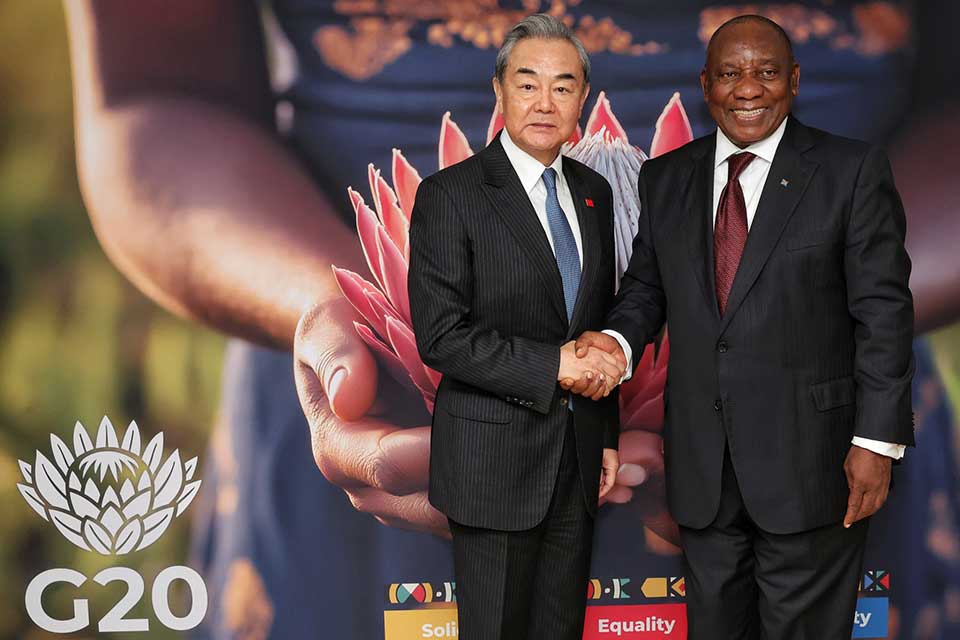Ramaphosa Faces Diplomatic Strain with the US
As tensions escalate between South Africa and the United States, President Cyril Ramaphosa grapples with attempts to repair a fractured relationship. The Trump administration’s actions have effectively isolated South Africa, resulting in the blacklisting of its diplomats, a refusal to engage in high-level meetings, and potential economic repercussions through looming tariffs that threaten to exacerbate the nation’s economic woes.
A recent development came when the Democratic Alliance (DA), South Africa’s second-largest political party, disclosed that the US had denied a diplomatic visa to Mcebisi Jonas, a special envoy appointed by Ramaphosa to enhance bilateral relations. This rejection signals a continued diplomatic freeze and the administration’s refusal to consider Jonas as an official representative. As a response, Ramaphosa’s spokesperson accused the DA of spreading misinformation but stopped short of refuting their claims.
Historical Context and Recent Developments
The backdrop to this diplomatic strain is the deteriorating relationship initiated by Trump’s administration, characterized by accusations against Ramaphosa’s government for its policies, which are perceived as detrimental to the white population in South Africa. Trump severed aid to the country amid allegations related to land reform and human rights, further complicating diplomatic ties.
Priyal Singh, a foreign policy analyst at the Institute for Security Studies, remarked that Jonas’s inability to engage with US officials represents a continuation of Trump’s strategy to sideline South Africa, severing critical lines of communication and support.
Impact on Global Engagements
The ramifications of these diplomatic tensions extend to South Africa’s participation in international forums. For instance, US Treasury Secretary Scott Bessent opted to bypass a recent G20 meeting hosted in South Africa, sending a subordinate instead. This followed a similar avoidance by Secretary of State Marco Rubio, who criticized the South African government for perceived anti-American sentiments.
Despite advancements in engaging with other nations, Ramaphosa had hoped for a thaw in relations following an Oval Office meeting with Trump that was ultimately overshadowed by Trump’s unsubstantiated claims of a genocide against white South Africans. This interaction further alienated the South African government from US leadership.
Economic Consequences and Future Prospects
Anticipated sanctions loom large over South Africa’s economy, with Trump threatening to impose 30% tariffs on South African exports starting August 1. This potential move could result in a staggering loss of approximately 100,000 jobs, according to the nation’s central bank, amidst an already dire unemployment rate of 32.9%. The agricultural sector, a critical component of South Africa’s economy, may suffer significantly from these tariffs.
To illustrate the potential economic impacts of the upcoming tariffs, the table below details projected job losses within key sectors of the South African economy:
| Sector | Projected Job Losses |
|---|---|
| Agriculture | 40,000 |
| Manufacturing | 30,000 |
| Services | 30,000 |
| Mining | 25,000 |
As South Africa attempts to navigate these turbulent waters, both domestic analysts and international observers agree that the nation’s leadership will need to diversify its alliances while bracing for the ongoing diplomatic challenges posed by the current US administration.


